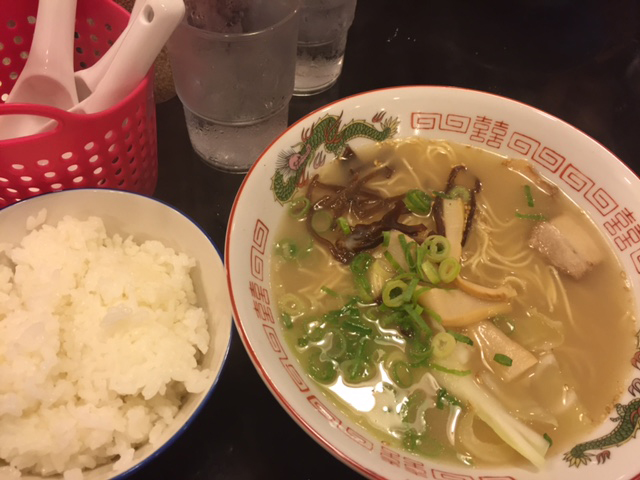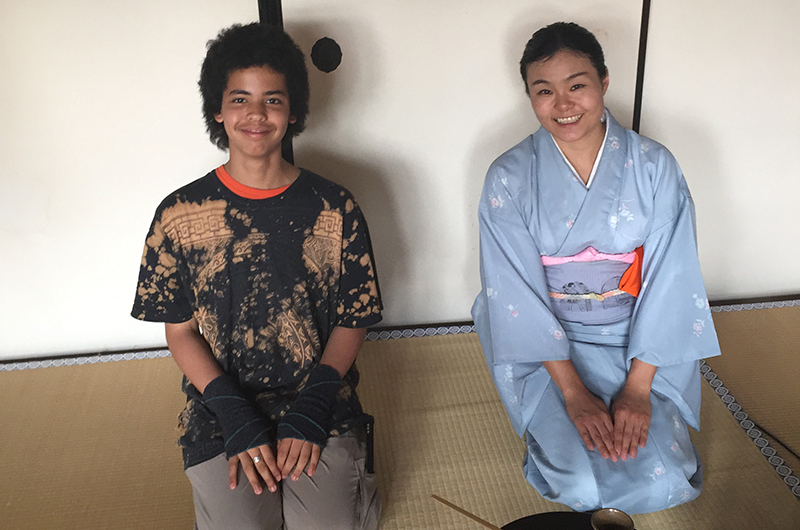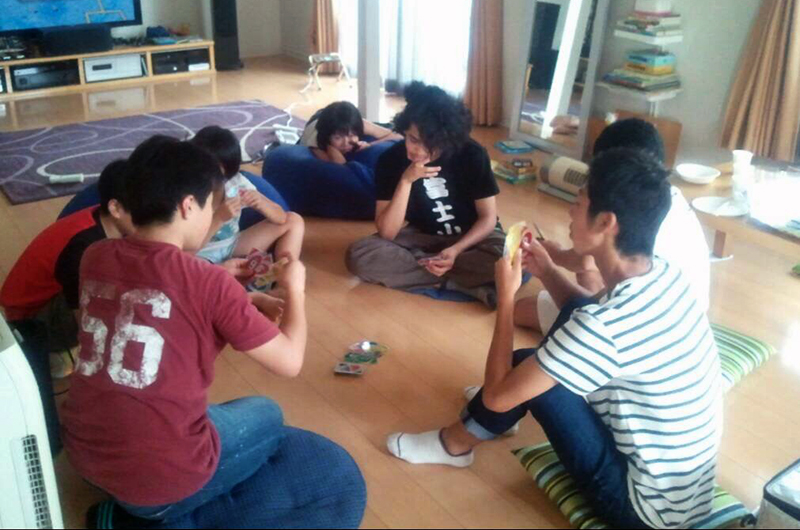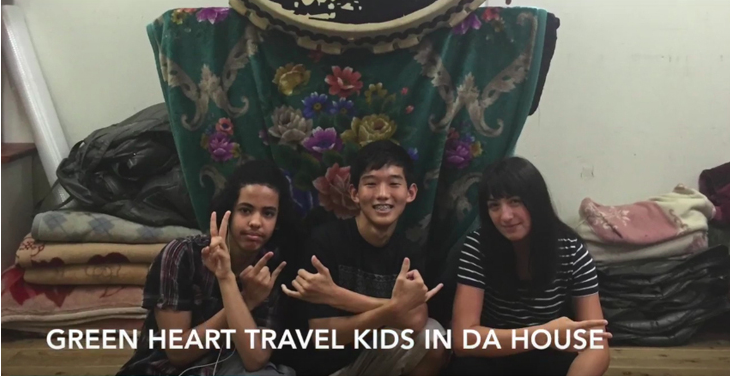My total impression of my language camp in Fukuoka was overwhelmingly positive. I made a bunch of new friends and I lived in Japan not as a tourist, but as a normal student. Taking the train and walking among crowds of people was an experience I didn’t get on my previous trip to this country. I was really nervous on my first day, but I was alright because everyone else seemed to be nervous too. I made friends on the first day, too. It was awkward at first, but it got better from there.
Japanese Food Scene
The food scene in town was interesting too, because there were so many ramen shops. I quickly tired of ramen, and proceeded to avoid it. I liked eating the baked goods that I could find there, which were delicious. My host family also cooked a variety of things, with there always being meat or fish at the center of our meals. The dinners I had with my host family were always nice, with there being a variety of foods at hand to choose from. There were a lot of bento places as well. Even though Japanese food isn’t my favorite, I found foods that suited me.

Learning the Japanese Language
I am and was quite under-confident in my speaking skills of any foreign language (my Japanese is a little better now) and was super afraid of making mistakes, so I didn’t talk much with my hosts for the first few days. Dinner was awkward at first, since all I did was quietly listen. I built a better relationship with my hosts over time, and began growing more confident in talking with them. I think that the key is time.
Even if you are not confident in your ability, that feeling can go away with time and practice. I’m glad I stayed three weeks, and wish I could stay longer to improve more. Sometimes it is a bit lonely being more or less alone, but like I said before, time is key. You will get over those feelings of loneliness and work to understand your surrounding environments. As I’m writing this at home, I kind of wish that I was back in Japan! It is still weird being here, not having to struggle to speak a different language. I kind of miss that, because every moment was a learning experience.

Managing My Money Abroad
I also learned how to better limit how much money I spend during my time there. I had to pay for my public transportation and most of my food costs, which adds up to a lot of money. The minimum amount per day can be at least $15. I only spent 500 yen on a gift for myself, and I blew most of my money on gifts for my family. I learned more than just how to get around in a foreign city during those three weeks.
Weekend Adventures in Japan
On the weekends, I went out with my host family, and for the most part didn’t speak English during that time. One day we went to a friend’s house, and played video games and pretty much just hung out. The good thing about language barriers is that they don’t apply when playing video games. We had dinner and played card games as well. At the school that I attended we were taught formal Japanese, which is generally useful, but kind of stuffy sounding in an informal environment. I learned a lot about informal language when I was with my hosts, and Informal Japanese comes a lot easier to me than formal language.

We went to Dazaifu Tenmangu Jinja when the rain was pouring, which did end up with both me and my host sister having some very wet clothes. I tried mochi, which was the shrine’s specialty. It put most mochi I had tried so far to shame. My hosts treated me so well that I was sorry to leave without giving some sort of goodbye gift.
Language Classes at the School
School was very good. It started at either 9:30 a.m. or 10:30 a.m., and I didn’t get home until 6 p.m. Japanese classes were four hours long, and were generally useful. I began to learn about the enigma that is Japanese grammar, and about formal language as well. Japanese has several levels of formal and informal speech, which sounds a bit daunting, but is easy to understand. I usually hung out with my friends during the 50 minutes we have for lunch, buying either bento, ramen, or sweets to eat. The activity class is a class where we either do something like pottery or ikebana, or we go on a tour of sorts. It takes place either in the morning or the afternoon. It’s usually very fun; I got to spend time with my new friends, I tried new things like taiko, and I got to walk around town a bit.
When I hung out with my friends from school, we usually walked around town and in malls. We were always looking for food. My German friend always wanted ramen, even though she had it practically every day. We were an interesting group of nationalities: Turkish, German, Spanish, Canadian, American, and Taiwanese. My Turkish friend and I liked talking about geopolitical memes, an edgy subject that is full of racist and bigoted humor. There were always things to talk about. I asked my friends about their home countries, we talked about why they came to Japan, and about the state of the world. I will miss them now that I left.

I had such an eventful and fulfilling time in Fukuoka thanks to Greenheart Travel, GenkiJACS, my host family, and most of all my family for giving their support. I’d most definitely recommend this experience for anyone who wants to learn Japanese or travel to Japan.
Aden Jibril is 15 years old and lives in Oakland, California. His goal during his language program in Fukuoka, Japan is to “learn to cook at least one Japanese dish, increase my language skill, and to interact well with my host family.” Follow Aden’s adventures in Japan on his weekly blog post updates.

Leave a Reply